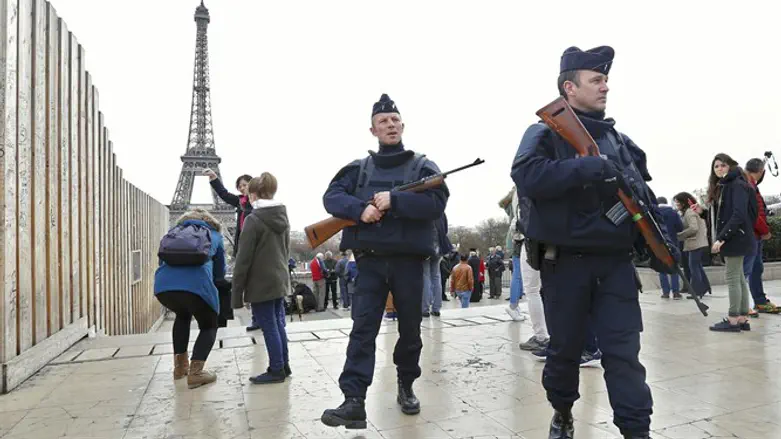
The director of counterterrorism in the European Union, Gilles de Kerchove, admitted that Europe had failed to understand the terror threats until it had to deal with them.
At the international conference of the Institute for Counterterrorism in Hertzliya he said that "The threat we are dealing with is very big, maybe the biggest in 20 years. There are a high number of fighters returning from Syria to Europe, in the region of more than 5,000 people."
He said that in the last terror attacks in Europe it was apparent that the the terrorists worked in organized cells. "Some of those involved were responsible for logistics while others were in charge of the attack itself. The security services have to deal with the significant challenge of locating and foiling the plots of people sent by ISIS. Only yesterday in Germany 3 suspects were arrested with false documents identical to those used in the terror attacks in Paris. We believe that there are a number of dormant cells in Europe which are just waiting for the signal to act."
He added that "Even after the Treaty of Lisbon took effect, the European Union is not the main body responsible for security in Europe. Our main activity is to provide support for the member countries of the Union. Even though we are not the main people responsible, the expectations from us are enormous."
De Kerchove conceded that "Just like with the recommendations in the report following the 9/11 attack ,Europe must also think outside the box and join the dots. The Americans did not think that a plane could serve as a weapon,just as we didn't think that a truck could serve as one as occured in Nice. The big challenge for Europe at the Union level is to ensure that the intelligence community work in full cooperation with law enforcers."
Members of the French parliament serving on the special committee investigating the terror attacks in France said that the main conclusions of the committee show that cooperation between the 19 intelligence agencies working in France must improve. All the terrorists in the attacks were known to the intelligence and security agencies in France but the lack of cooperation between them and between all the countries in the EU aided the attackers.
Georges Panac, president of the special committee says that democracies must adapt themselves to the threats that terrorists present and prepare accordingly. He says that even though as a judge he sees the damage to personal freedoms in administrative detention but "in order to protect human life and so as not to let terrorists precede us", he believes that such steps would be necessary.